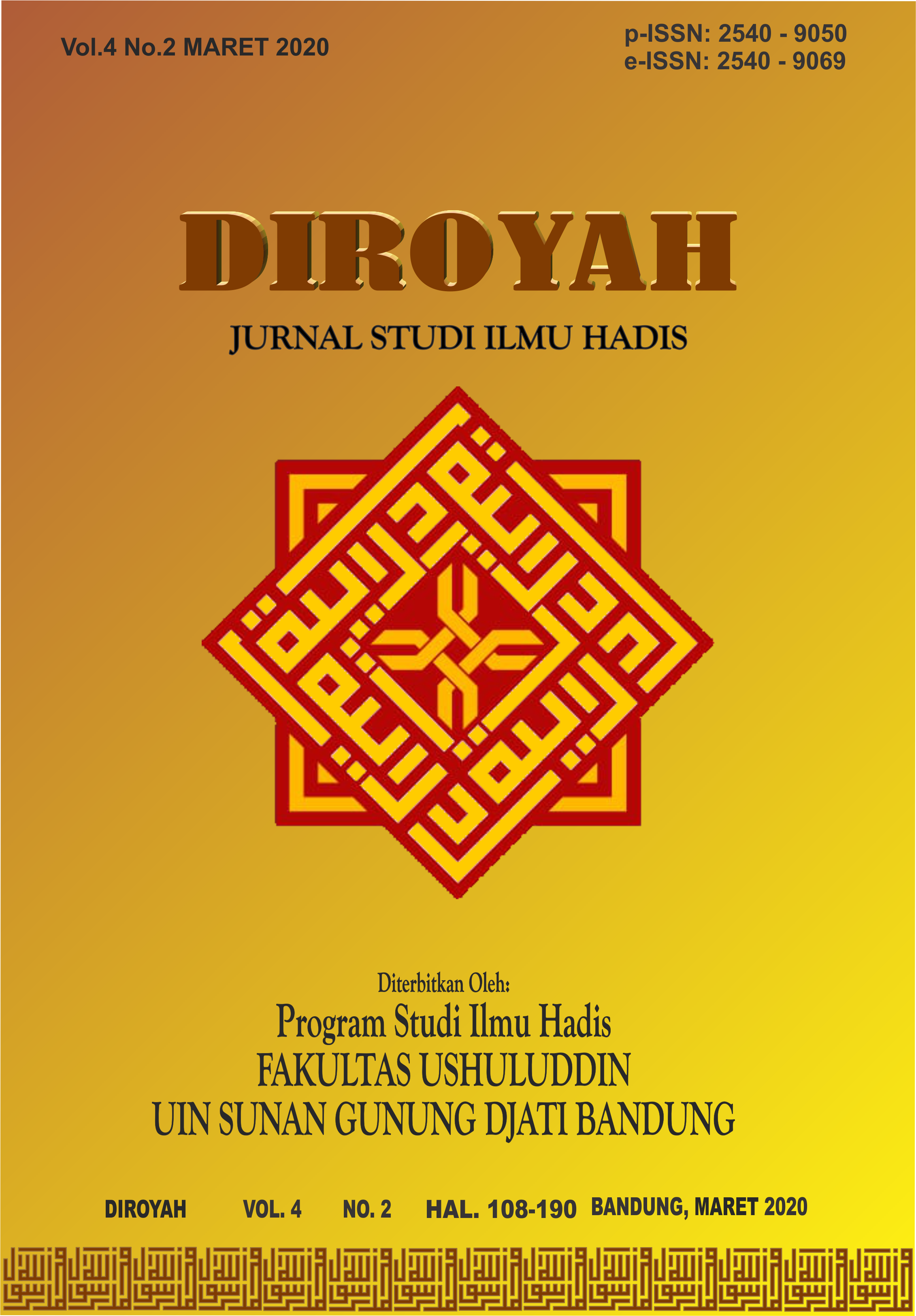KONSEP SUNNAH PERSPEKTIF MUHAMMAD SYAHRUR
Main Article Content
Abstract
The development of hadith’s criticism discourses has been an interesting issue in Islamic Studies. Previously, the sunnah’s concept have formulated by muhadditsin or ushuliyyīn. They have offered that to use sunna as second resource of Islamic preceptions. But, It was different one according to Muhammad Syahrur. He was launched a difference concept of sunna. As muslim scholar, he was an popular intellectual with controversial thought. This paper tries to explain about his thought on the concept of sunna. According to him, what has Muhammad said and did are said to be result of culture than revelation. He claimed that many hadiths have contradiction with al-Qur’an, may be rejected, while it is related to religious observance or moral conduct. Because, in this case Muhammad not only an prophet, but also as man as usual. The result of this article will explain that sunna not only related with one perspective of Muhammad’s prophetic, but also must be viewed with perspective that Muhammad as a man. He also rejected that sunna as second resource after al-Qur’an to decide Islamic law.
Â
Article Details
Authors who publish with this journal agree to the following terms:
- Authors retain copyright and grant the journal right of first publication with the work simultaneously licensed under a Creative Commons Attribution-NonCommercial-ShareAlike 4.0 International License that allows others to share the work with an acknowledgment of the work's authorship and initial publication in this journal.
- Authors are able to enter into separate, additional contractual arrangements for the non-exclusive distribution of the journal's published version of the work (e.g., post it to an institutional repository or publish it in a book), with an acknowledgment of its initial publication in this journal.
- Authors are permitted and encouraged to post their work online (e.g., in institutional repositories or on their website) prior to and during the submission process, as it can lead to productive exchanges, as well as earlier and greater citation of published work (See The Effect of Open Access).
References
‘Itr, Nuruddin. Manhaj al-Naqd fÄ« ‘UlÅ«m al-HadÄ«ts. Damaskus: DÄr al-Fikr, 1979.
Abidin, Zainal. Rethinking Islam dan Iman. Banjarmasin: IAIN Antasari Press, tt.
al-A’zhami, Musthafa. DirÄsÄt fi al-ḤadÄ«ts al-Nabawiy wa TÄrÄ«kh TadwÄ«nih. Beirut: al-Maktab al-Islami, 1980.
al-Khathib, Muhammad ‘Ajjaj. Ushul al-HadÄ«ts; UlÅ«muhÅ« wa Mushthalaḥuhu. Beirut: DÄr al-Fikr, 2006.
al-Qusyairi, Abu al-Hasan Muslim bin al-Hajjaj bin Muslim. Shahih Muslim. Riyadh: DÄr al-HadlÄrah wa al-Tauzī’, 2015, Cet. II.
Andi, Azhari Luqman Hakim dan Mutawakkil Hibatullah. “Reinterpretasi Sunnah; Studi Pemikiran Muhammad Syahrur Terhadap Sunnahâ€, Jurnal Living Hadis, Volume I, No. 1, Mei 2006.
Ardiansyah. “Konsep Sunnah dalam Perspektif Muhammad Syahrurâ€, Jurnal Miqot, Vol. XXXIII, No. 1, Januari-Juni 2009.
Ismail, M. Syuhudi. Hadis Nabi Yang Tekstual dan Kontekstual (Jakarta: Bulan Bintang, 1994).
Mustaqim, Abdul. Epistemologi Tafsir Kontemporer. Yogyakarta: Lkis, 2010, Cet. I.
_________. Ilmu Ma’anil Hadis. Yogyakarta: Idea Press, 2016, Cet. II).
Rahman, Fazlur. Islam; Sejarah Pemikiran dan Peradaban. Bandung: Mizan, 2017.
Syahrur, Muhammad. al-KitÄb wa al-Qur’an; QirÄ’ah Mu’Äshirah. Damaskus: al-AhÄli li al-Tauzī’, tt.

